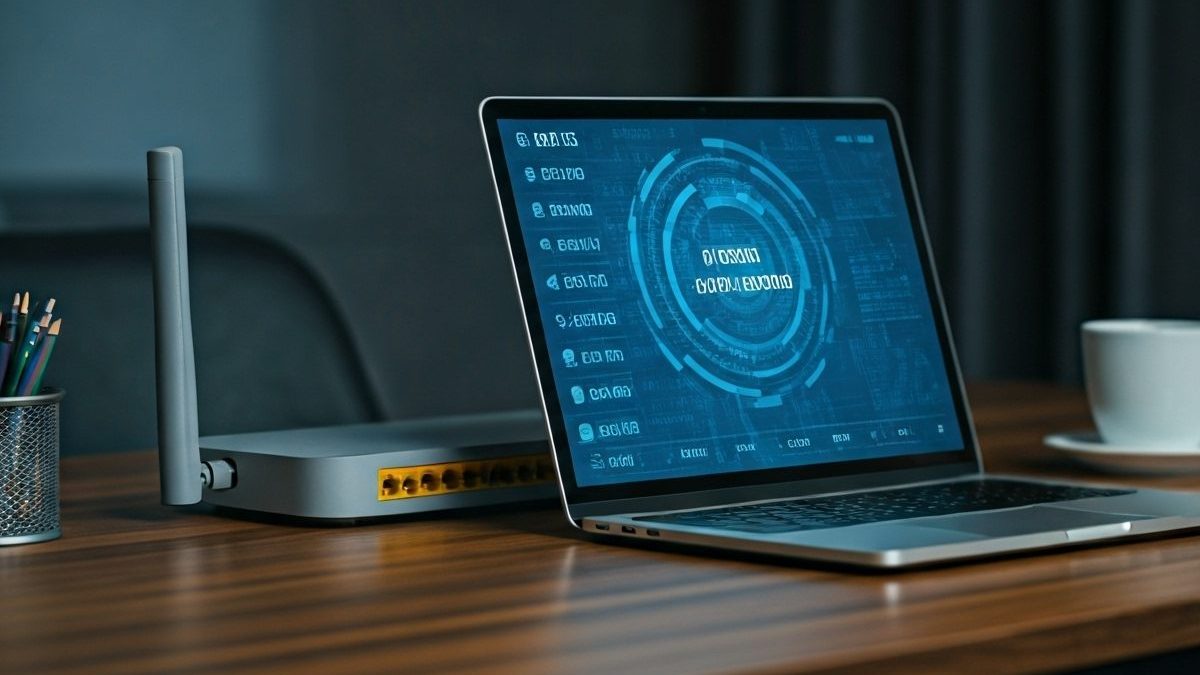Table of Contents
Key Highlights
- 10.24.0.1.53 represents a private IP address commonly used within American network environments for device communication and configuration.
- Private IP addresses like 10.24.0.1.53 help in creating isolated local networks, enhancing security and resource sharing capabilities.
- This address often functions as a default gateway, managing traffic between local devices and broader networks, including the internet.
- Understanding its role assists in troubleshooting network issues and maintaining seamless connectivity.
- Common applications of 10.24.0.1.53 include streamlining internet access for Android devices and integrating platforms like Instagram and Google services effectively.
Introduction
Understanding the intricacies of IP addresses can significantly enhance your connectivity experience. A unique identifier, such as 10.24.0.1.53, serves as a gateway for devices within a network, facilitating communication and access to resources. For American users, recognizing the implications of this specific private IP can help navigate troubleshooting scenarios and ultimately bolster internet security. By leveraging insights into how this IP address operates, individuals can ensure efficient device management while minimizing potential risks associated with network vulnerabilities.
What Is 10.24.0.1.53 and Why Does It Matter for Americans?
10.24.0.1.53 is a private IP address commonly used within local networks in the U.S. It is vital for American users as it facilitates efficient communication between devices, enhances network organization, and supports various applications like home networking and enterprise environments.
Understanding Private IP Addresses and Their Uses
Private IP addresses serve essential roles within local networks, acting as unique identifiers for devices while keeping them hidden from the public internet. Unlike public IPs, they enhance security by preventing direct exposure to potential threats online. Typical scenarios include home networks where routers assign these addresses to connected devices, like smartphones or smart TVs. This internal structure supports efficient communication among devices, leveraging DNS for streamlined internet access, ultimately creating a seamless user experience for American households.
Common Applications of 10.24.0.1.53 in American Networks
In American networks, 10.24.0.1.53 serves as a critical private IP address, functioning primarily as a gateway for devices within a local area network (LAN). It facilitates seamless communication between devices, enhancing connectivity for various applications—streaming services, smart home devices, and gaming consoles. Additionally, using this IP can simplify DNS configurations, allowing for efficient hostname resolution. Ultimately, it plays an essential role in managing local traffic and ensuring a stable internet experience for users seeking optimized network performance.
Troubleshooting and Security Concerns with 10.24.0.1.53
Managing network configurations can pose significant challenges, especially for American users navigating through the complexities of private IP addresses like 10.24.0.1.53. Common issues often involve DNS misconfigurations or connectivity problems, impacting devices such as Android smartphones and computers. To mitigate security concerns, it’s essential to regularly update gateway settings and monitor usage. Employing strategies like changing hostnames and utilizing secure passwords can enhance overall network integrity, ensuring a safer online experience across various platforms, including social media and cloud services.
Typical Issues Faced by American Users
Frequent connectivity problems often arise for American users, particularly regarding the proper configuration of their private IP addresses. Many encounter issues with their gateway settings, leading to disrupted access to various online services like Google and Instagram. Additionally, DNS resolution errors can complicate network functionality, especially for those using Android devices. Understanding these challenges is crucial for maintaining a stable connection and facilitating seamless communication between devices on a local network. Awareness of these issues can significantly improve user experience.
Tips to Secure and Manage Your Network Effectively
Implement regular updates on your router to ensure robust security, as outdated firmware can leave your network vulnerable. Utilizing network segmentation helps protect sensitive data by isolating devices based on function or access level. Incorporating strong passwords and enabling features like two-factor authentication can significantly reduce unauthorized access to your private IP addresses. Lastly, consider utilizing DNS filtering to block harmful sites, enhancing your overall internet safety while managing devices like IoT and Android efficiently.
Conclusion
Navigating the intricacies of 10.24.0.1.53 highlights its role in American networks, providing users with an understanding of private IP addresses and their crucial functions. By addressing troubleshooting methods and security concerns, individuals can now confidently manage their network gateways. It’s imperative to stay informed about potential issues and implement effective strategies to safeguard against vulnerabilities. Embracing these practices not only enhances connectivity but fosters a secure internet experience for all users in the digital landscape.
Frequently Asked Questions
Is 10.24.0.1.53 a public or private IP address?
10.24.0.1.53 is a private IP address, as it falls within the reserved ranges designated for private use. This means it’s not routable on the public internet, making it suitable for internal networks in American homes and businesses to enhance security and manageability.
Can I use 10.24.0.1.53 to access the internet directly?
10.24.0.1.53 is a private IP address, meaning it cannot be used to access the internet directly. Instead, it’s utilized for internal networks, enabling devices to communicate within the same network. For internet access, a public IP address is required.
How do I find out if my device is using 10.24.0.1.53?
To determine if your device is using 10.24.0.1.53, access your network settings and check the IP address assigned to your device. Alternatively, use the command prompt (Windows) or terminal (Mac) to display network configurations and identify the active IP address in use.
What should I do if there’s an IP conflict with 10.24.0.1.53?
If you encounter an IP conflict with 10.24.0.1.53, first release the IP from the conflicting device and then assign a different IP address to avoid disruption. Ensure all devices are updated to maintain connectivity and check your DHCP settings for proper management.
Are there legal concerns for Americans using 10.24.0.1.53?
While using private IP addresses like 10.24.0.1.53 typically doesn’t raise significant legal issues, Americans should be aware of potential privacy violations or network misuse. It’s essential to comply with local laws and ensure proper usage within residential or business networks to avoid complications.

